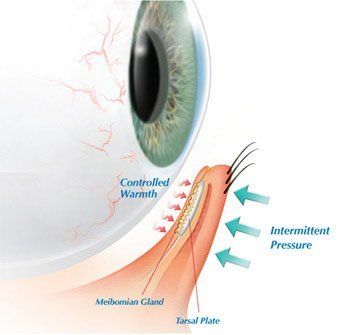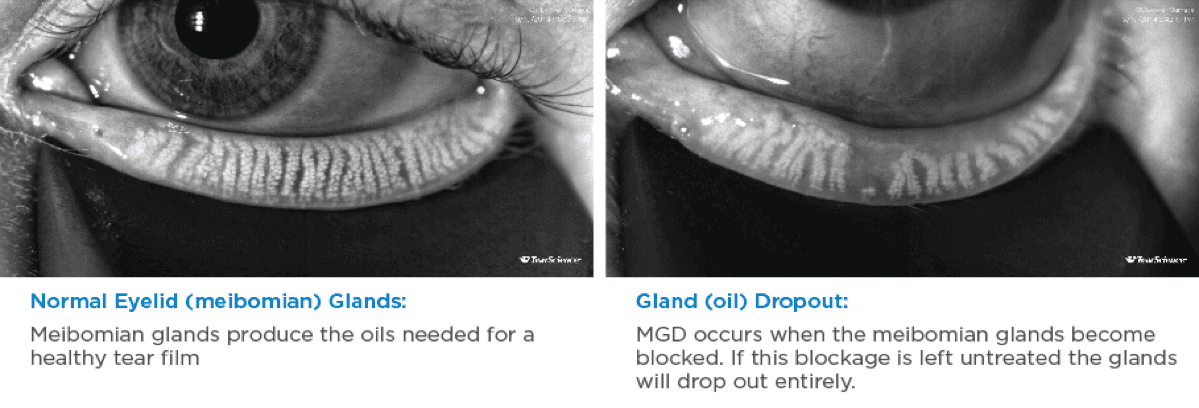MEIBOMIAN GLAND DYSFUNCTION (MGD)
DIAGNOSIS AND TREATMENT
WHAT IS MEIBOMIAN GLAND DYSFUNCTION (MGD)?
Meibomian Gland Dysfunction, or MGD, occurs when there is a compromise to the function and/or structure of the meibomian glands in the eyelids that produce the protective oily layer of the tear film. MGD affects 86% of those with dry eye syndrome, and it’s often treatable.
DIAGNOSING MGD WITH MEIBOMIAN IMAGING
The LipiScan®interferometer is the first device of its kind that enables doctors to assess your tear film by capturing images that measure the thickness of the lipid (oil) component, and an examination of the quantity and quality of lipids being released from your glands using the Meibomian Gland Evaluator™.
Until the introduction of LipiScan®, your doctor did not have a way to show if you were lipid deficient. As part of the revolutionary TearScience® system, your doctor will perform a series of tests to determine the likely cause of your dry eyes. Knowing what is causing your dry eyes will help your doctor determine the best treatment option.
The LipiView® process is non-invasive and only takes about five minutes to asses the lipid layer of your tears, and to scan the meibomian glands.
Schedule an Eye Exam
TREATING MEIBOMIAN GLAND DYSFUNCTION
Possible treatment for Evaporative Dry Eyes and MGD include:
Warm compress therapy and eyelid hygiene using scrubs and manual massage
Over-the-counter tear replacements and lubricants
Punctal plugs made of silicone or collagen inserted in the tear ducts
Doctor McGee or Doctor Cherian will determine the best treatment option for you based on several factors that are obtained during your eye evaluation.
FINANCING OPTIONS FOR THE LipiScan®
The eye examination and parts of a dry eyes evaluation may be covered by your medical insurance. The LipiScan® is not covered by medical insurance. It is considered self-pay, and payment is collected at the time of service. There may be rebates and/or discounts offered to counter some of the costs associated with the test and procedure. We also offer CareCredit to help with the cost.




